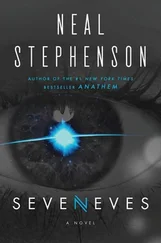Neal Stephenson - Snow Crash
Здесь есть возможность читать онлайн «Neal Stephenson - Snow Crash» весь текст электронной книги совершенно бесплатно (целиком полную версию без сокращений). В некоторых случаях можно слушать аудио, скачать через торрент в формате fb2 и присутствует краткое содержание. Жанр: Киберпанк, на английском языке. Описание произведения, (предисловие) а так же отзывы посетителей доступны на портале библиотеки ЛибКат.
- Название:Snow Crash
- Автор:
- Жанр:
- Год:неизвестен
- ISBN:нет данных
- Рейтинг книги:5 / 5. Голосов: 1
-
Избранное:Добавить в избранное
- Отзывы:
-
Ваша оценка:
- 100
- 1
- 2
- 3
- 4
- 5
Snow Crash: краткое содержание, описание и аннотация
Предлагаем к чтению аннотацию, описание, краткое содержание или предисловие (зависит от того, что написал сам автор книги «Snow Crash»). Если вы не нашли необходимую информацию о книге — напишите в комментариях, мы постараемся отыскать её.
Snow Crash — читать онлайн бесплатно полную книгу (весь текст) целиком
Ниже представлен текст книги, разбитый по страницам. Система сохранения места последней прочитанной страницы, позволяет с удобством читать онлайн бесплатно книгу «Snow Crash», без необходимости каждый раз заново искать на чём Вы остановились. Поставьте закладку, и сможете в любой момент перейти на страницу, на которой закончили чтение.
Интервал:
Закладка:
"What do the Akkadians have to say about her?"
"She is a goddess of the erotic and of fertility. She also has a destructive, vindictive side. In one myth, Kirta, a human king, is made grievously ill by Asherah. Only El, king of the gods, can heal him. El gives certain persons the privilege of nursing at Asherah's breasts. El and Asherah often adopt human babies and let them nurse on Asherah - in one text, she is wet nurse to seventy divine sons."
"Spreading that virus," Hiro says. "Mothers with AIDS can spread the disease to their babies by breastfeeding them. But this is the Akkadian version, right?"
"Yes, sir."
"I want to hear some Sumerian stuff, even if it is untranslatable."
"Would you like to hear how Asherah made Enki sick?"
"Sure."
"How this story is translated depends on how it is interpreted. Some see it as a Fall from Paradise story. Some see it as a battle between male and female or water and earth. Some see it as a fertility allegory. This reading is based on the interpretation of Bendt Alster."
"Duly noted."
"To summarize: Enki and Ninhursag - who is Asherah, although in this story she also bears other epithets - live in a place called Dilmun. Dilmun is pure, clean and bright, there is no sickness, people do not grow old, predatory animals do not hunt.
"But there is no water. So Ninhursag pleads with Enki, who is a sort of water-god, to bring water to Dilmun. He does so by masturbating among the reeds of the ditches and letting flow his life-giving semen - the 'water of the heart,' as it is called. At the same time, he pronounces a nam-shub forbidding anyone to enter this area - he does not want anyone to come near his semen."
"Why not?"
"The myth does not say."
"Then," Hiro says, "he must have thought it was valuable, or dangerous, or both."
"Dilmun is now better than it was before. The fields produce abundant crops and so on."
"Excuse me, but how did Sumerian agriculture work? Did they use a lot of irrigation?"
"They were entirely dependent upon it."
"So Enki was responsible, according to this myth, for irrigating the fields with his 'water of the heart.'"
"Enki was the water-god, yes."
"Okay, go on."
"But Ninhursag - Asherah - violates his decree and takes Enki's semen and impregnates herself. After nine days of pregnancy she gives birth, painlessly, to a daughter, Ninmu. Ninmu walks on the riverbank. Enki sees her, becomes inflamed, goes across the river, and has sex with her."
"With his own daughter."
"Yes. She has another daughter nine days later, named Ninkurra, and the pattern is repeated."
"Enki has sex with Ninkurra, too?"
"Yes, and she has a daughter named Uttu. Now, by this time, Ninhursag has apparently recognized a pattern in Enki's behavior, and so she advises Uttu to stay in her house, predicting that Enki will then approach her bearing gifts, and try to seduce her."
"Does he?"
"Enki once again fills the ditches with the 'water of the heart,' which makes things grow. The gardener rejoices and embraces Enki."
"Who's the gardener?"
"Just some character in the story," the Librarian says. "He provides Enki with grapes and other gifts. Enki disguises himself as the gardener and goes to Uttu and seduces her. But this time, Ninhursag manages to obtain a sample of Enki's semen from Uttu's thighs."
"My God. Talk about your mother-in-law from hell."
"Ninhursag spreads the semen on the ground, and it causes eight plants to sprout up."
"Does Enki have sex with the plants, then?"
"No, he eats them - in some sense, he learns their secrets by doing so."
"So here we have our Adam and Eve motif."
"Ninhursag curses Enki, saying 'Until thou art dead, I shall not look upon thee with the "eye of life."' Then she disappears, and Enki becomes very ill. Eight of his organs become sick, one for each of the plants. Finally, Ninhursag is persuaded to come back. She gives birth to eight deities, one for each part of Enki's body that is sick, and Enki is healed. These deities are the pantheon of Dilmun; i.e., this act breaks the cycle of incest and creates a new race of male and female gods that can reproduce normally."
"I'm beginning to see what Lagos meant about the febrile two-year-old."
"Alster interprets the myth as 'an exposition of a logical problem: Supposing that originally there was nothing but one creator, how could ordinary binary sexual relations come into being?'"
"Ah, there's that word 'binary' again."
"You may remember an unexplored fork earlier in our conversation that would have brought us to this same place by another route. This myth can be compared to the Sumerian creation myth, in which heaven and earth are united to begin with, but the world is not really created until the two are separated. Most Creation myths begin with a 'paradoxical unity of everything, evaluated either as chaos or as Paradise,' and the world as we know it does not really come into being until this is changed. I should point out here that Enki's original name was En-Kur, Lord of Kur. Kur was a primeval ocean - Chaos - that Enki conquered."
"Every hacker can identify with that."
"But Asherah has similar connotations. Her name in Ugaritic, 'atiratu yammi' means 'she who treads on (the) sea (dragon).' "
"Okay, so both Enki and Asherah were figures who had in some sense defeated chaos. And your point is that this defeat of chaos, the separation of the static, unified world into a binary system, is identified with creation."
"Correct."
"What else can you tell me about Enki?"
"He was the en of the city of Eridu."
"What's an en? Is that like a king?"
"A priest-king of sorts. The en was the custodian of the local temple, where the me - the rules of the society - were stored on clay tablets."
"Okay. Where's Eridu?"
"Southern Iraq. It has only been excavated within the past few years."
"By Rife's people?"
"Yes. As Kramer has it, Enki is the god of wisdom - but this is a bad translation. His wisdom is not the wisdom of an old man, but rather a knowledge of how to do things, especially occult things. 'He astonishes even the other gods with shocking solutions to apparently impossible problems.' He is a sympathetic god for the most part, who assists humankind."
"Really!"
"Yes. The most important Sumerian myths center on him. As I mentioned, he is associated with water. He fills the rivers, and the extensive Sumerian canal system, with his life-giving semen. He is said to have created the Tigris in a single epochal act of masturbation. He describes himself as follows: 'I am lord. I am the one whose word endures. I am eternal.' Others describe him: 'a word from you - and heaps and piles stack high with grain.' 'You bring down the stars of heaven, you have computed their number.' He pronounces the name of everything created…"
"'Pronounces the name of everything created?"'
"In many Creation myths, to name a thing is to create it. He is referred to, in various myths, as 'expert who instituted incantations,' 'word-rich,' 'Enki, master of all the right commands,' as Kramer and Maier have it, 'His word can bring order where there had been only chaos and introduce disorder where there had been harmony.' He devotes a great deal of effort to imparting his knowledge to his son, the god Marduk, chief deity of the Babylonians."
"So the Sumerians worshipped Enki, and the Babylonians, who came after the Sumerians, worshipped Marduk, his son."
"Yes, sir. And whenever Marduk got stuck, he would ask his father Enki for help. There is a representation of Marduk here on this stele - the Code of Hammurabi. According to Hammurabi, the Code was given to him personally by Marduk."
Hiro wanders over to the Code of Hammurabi and has a gander. The cuneiform means nothing to him, but the illustration on top is easy enough to understand. Especially the part in the middle."
Читать дальшеИнтервал:
Закладка:
Похожие книги на «Snow Crash»
Представляем Вашему вниманию похожие книги на «Snow Crash» списком для выбора. Мы отобрали схожую по названию и смыслу литературу в надежде предоставить читателям больше вариантов отыскать новые, интересные, ещё непрочитанные произведения.
Обсуждение, отзывы о книге «Snow Crash» и просто собственные мнения читателей. Оставьте ваши комментарии, напишите, что Вы думаете о произведении, его смысле или главных героях. Укажите что конкретно понравилось, а что нет, и почему Вы так считаете.






